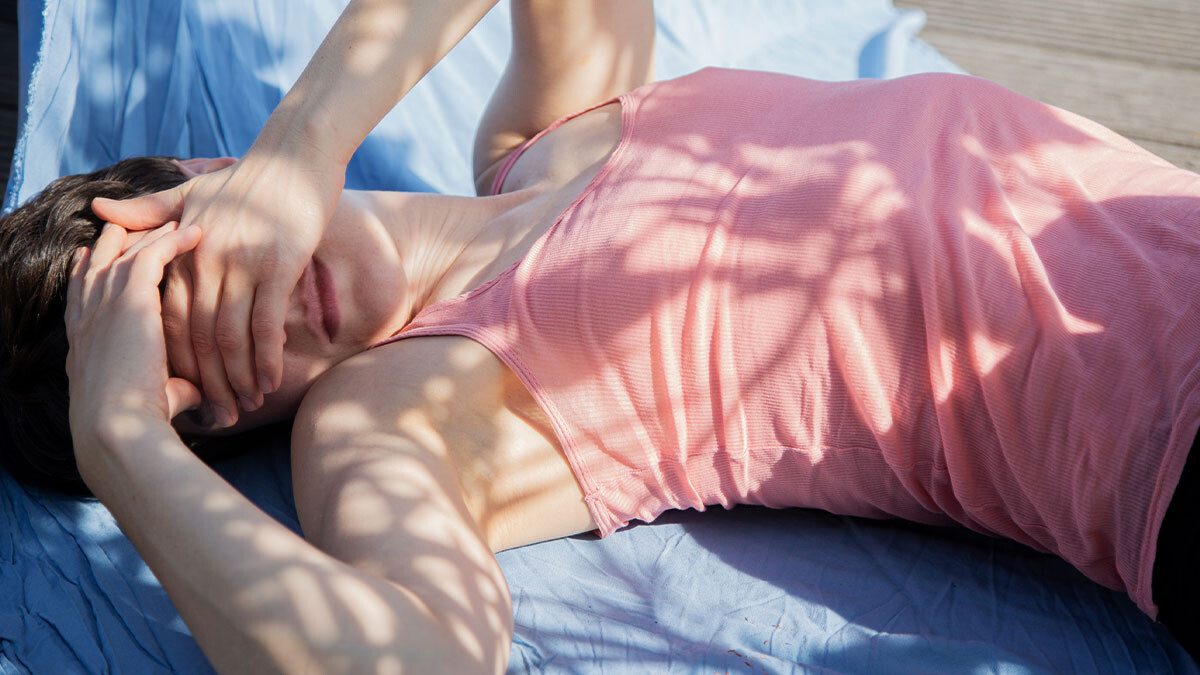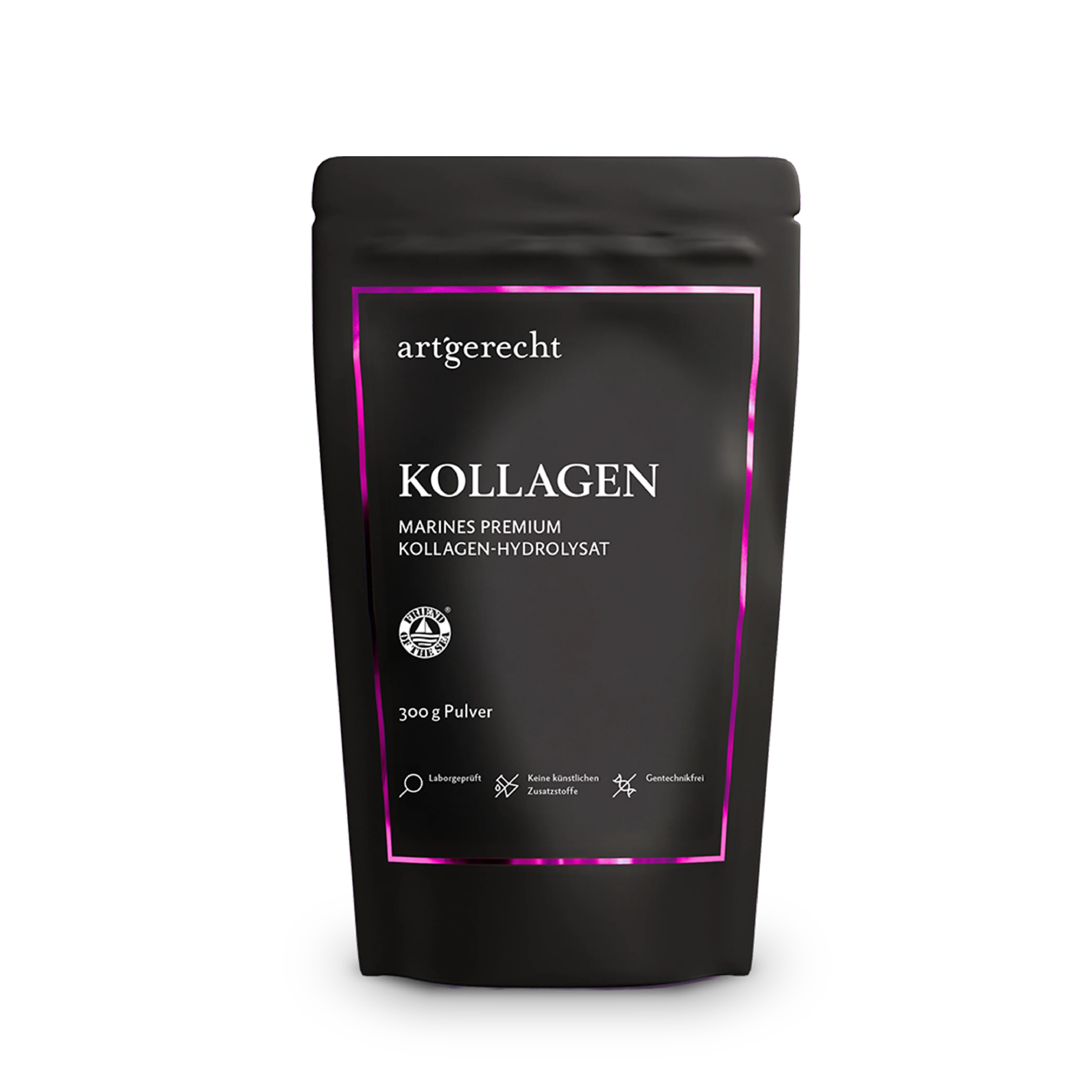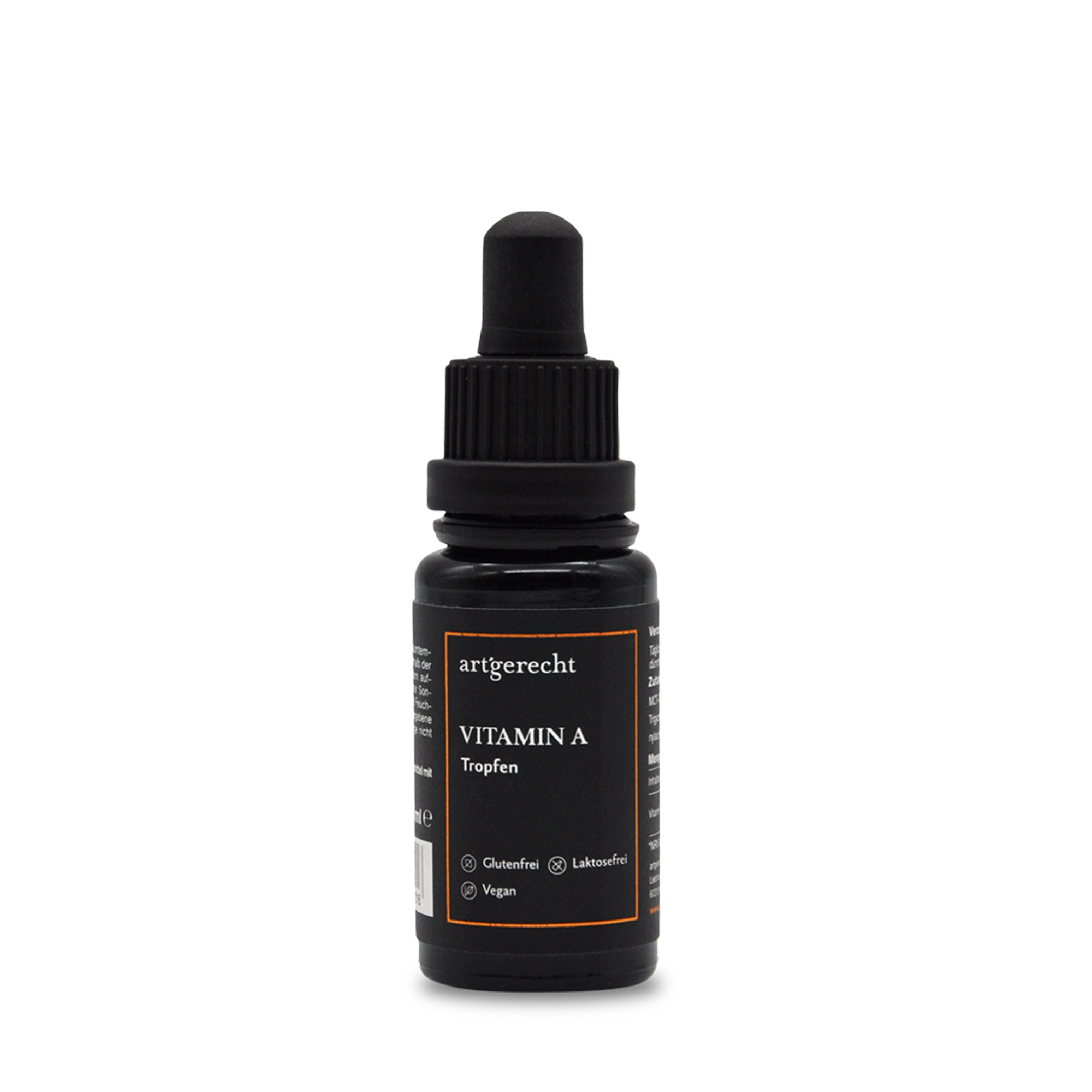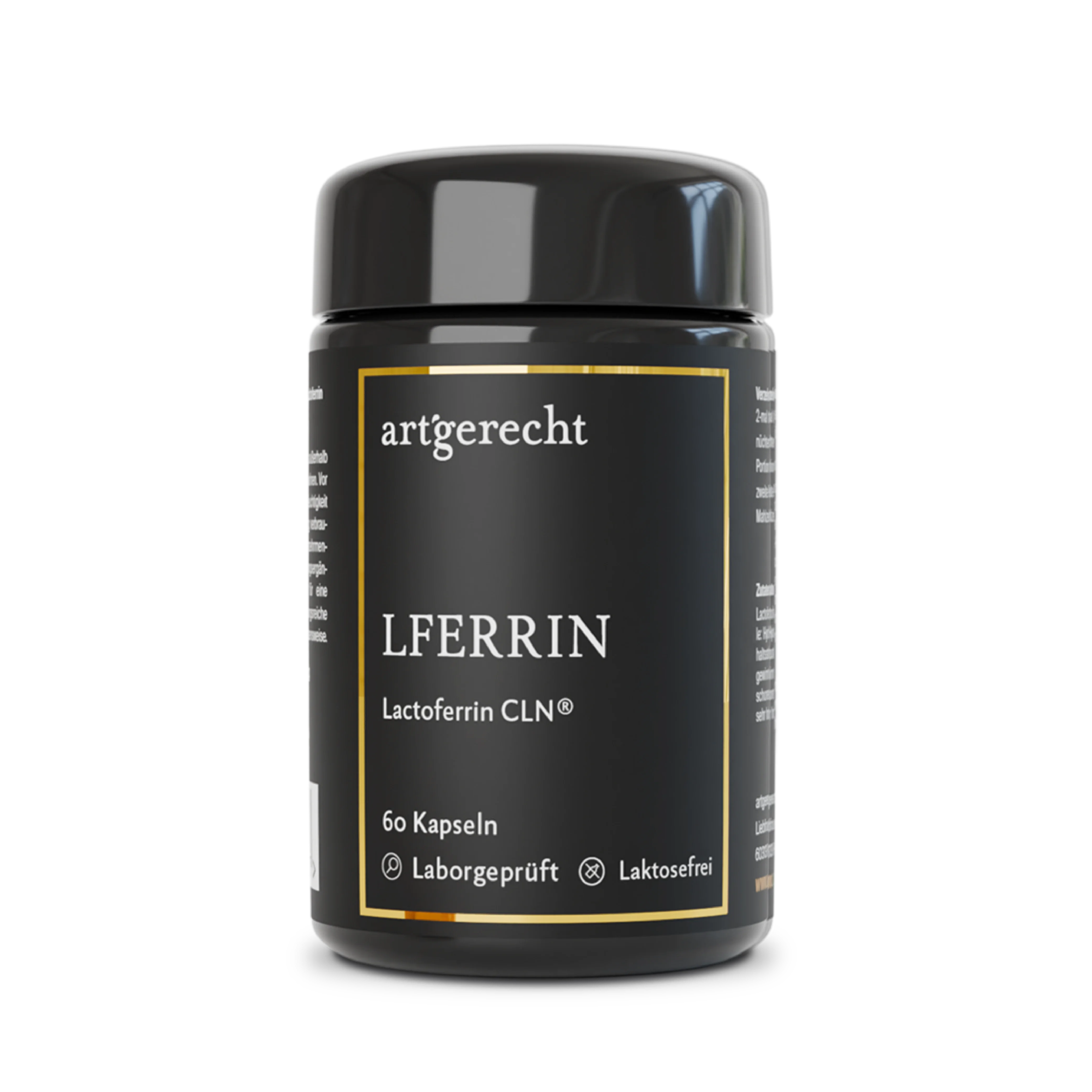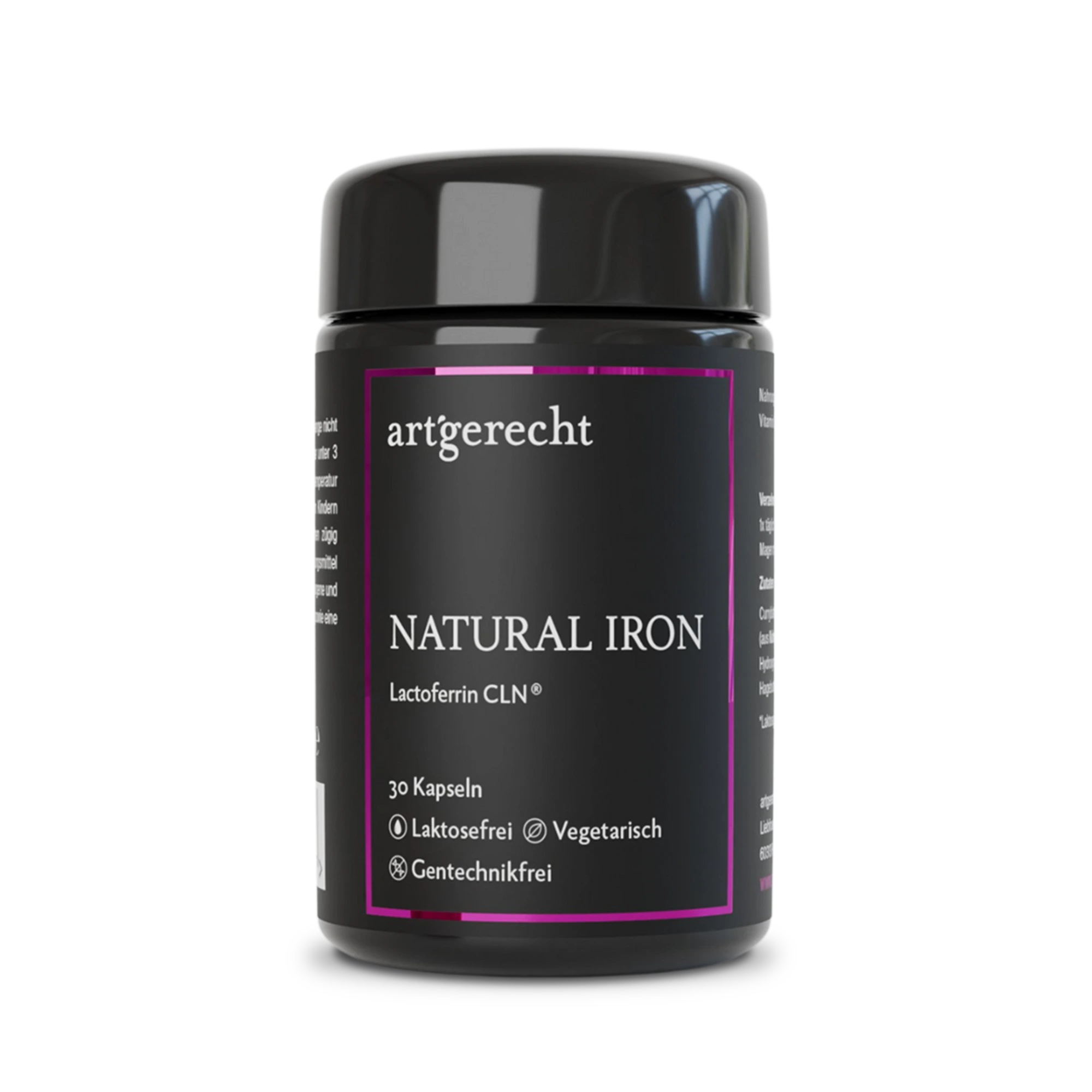Fatigue is a condition that signals to us that our body needs rest and sleep. If it exceeds a certain level or if you feel tired and listless all the time, we speak of organic pathological fatigue in the medical sense, the cause of which is an organic problem. In this respect, it makes perfect sense to get to the bottom of the causes of your own tiredness.
Possible causes for persistent fatigue
1. immune system: An increased energy requirement can be caused by a flu infection, for example. If our immune system is activated as a result, it consumes large amounts of energy to deal with the invaders. We then lack this energy elsewhere. We are constantly tired, don't want to move and are hardly hungry - typical illness behavior. [1]
However, the immune system can also ensure that we get tired in other ways - namely after eating. This is often the result of so-called „postprandial inflammation“ [2]. This evolutionary protective mechanism is activated when we consume high-calorie foods.
2. winter fatigue: In winter, we quickly make the connection to lack of sunlight. In the dark season, less vitamin D is produced[3], which is associated with chronic fatigue [4]. We are exposed to less blue light overall in winter due to natural daylight. Illuminance (LUX) and intensity are also reduced due to the Earth's angle of inclination to the sun and higher cloud density. In addition, we spend too much time in closed rooms and the illuminance is significantly reduced despite artificial light.
Light and health
- Clear summer days: 100.000 LUX (looking at the sky)
- Grey winter days: 7000 LUX (looking at the sky)
- Closed rooms with artificial light: 500 LUX (looking directly into the light source)
- Artificial light that you do not look directly into: 100 LUX at the retina
3. extreme körperliche Belastung und Inaktivität: Extreme physical or mental exertion may be another cause. This is why subsequent regeneration after heavy exertion is particularly important. In contrast, too little exercise, too much sitting or too much sleep can also cause fatigue. Exercise, on the other hand, stimulates the production of cortisol and thereby also promotes vitality.
4. lack of fluids: Humans are made up of 70% water, which is why an adequate supply of fluids is so important. Even mild dehydration can lead to impaired cognitive function and fatigue[5].
5. Overweight and underweight: To put it simply, when we are overweight we have difficulty accessing our energy reserves and when we are underweight we are unable to store the energy we consume. There are many reasons for this and the resulting fatigue is only the result of a problem in the energy balance[6]. In extreme cases, it is also advisable to consult a doctor.
6. Diets: Incorrect nutrition or extreme forms of nutrition, such as flash diets, which mainly involve going without food, cause energy deficiency, which can also result in fatigue.
7. Hormonal factors: Puberty [7] or menopause [8] but also certain medications often lead to a decrease in the number of menstrual cycles.often lead to regulatory disturbances in the hormone balance and also in the energy distribution. If the symptoms are permanently stressful, it also makes sense to see a doctor.
| Organ involved in energy metabolism | Function in energy metabolism | What problem can occur? |
| Shield gland | Hormone production for energy metabolism | Shield gland |
| Liver | Energy supply | Liver cirrhosis |
| Intestine | Energy absorption | Digestive disorders |
| Organ with increased energy consumption | ||
| Immune system | Defense against pathogens | Fluish infection/chronic illness |
| Brain | Control center for bodily functions | Permanent stress |
| Musculature | Exercise | Extreme physical stress |
| Micronutrient deficiency | ||
| Vitamin B12 | Energy production in the mitochondria | Impaired energy metabolism [9] |
| Iron | Energy production in the mitochondria | Iron deficiency |
| Vitamin D | Unknown in relation to energy metabolism | Vitamin D deficiency [10] |
| Coenzyme Q10 | Energy production in the mitochondria | Impaired energy metabolism [11] |
| NADH | Energy production in the mitochondria | impaired energy metabolism [12] |
| Magnesium | Energy production in the mitochondria | Impaired energy metabolism [13] |
What are the consequences of stupid moderation?
Fatigue signals to us that the energy we absorb is not being optimally distributed throughout the body. This is also normal after heavy exertion, hearty meals or only a few hours' sleep. However, if you are constantly tired over a long period of time and cannot attribute this condition to a specific cause, such as physical or mental overload, you should have a check-up with your doctor. People who suffer from chronic exhaustion, mental illness or low blood pressure, for example, also often feel tired and exhausted. However, we can often counteract „normal“ tiredness by making small lifestyle changes.
Tips against fatigue – species-appropriate life hacks
Even simple life hacks can have a positive impact on our vitality and health:
1. drink enough
Important here: no high-calorie and sugary drinks, but water, tea and coffee. However, a little caution is advised - because coffee and green tea contain caffeine. Caffeine in itself is of course not a bad thing and can be consumed with pleasure. However, too much caffeine can reduce the ability to concentrate. Caffeine also reduces the production of our sleep hormone melatonin [14], which can affect the quality of sleep.
2. reduce (chronic) stress through exercise
For our ancestors, stress was always linked to movement, regardless of whether we were hungry or running from an animal. Through movement and the increased metabolism that results from it, we humans can reduce stress hormones and channel energy to where it is needed. This is why exercise is a key aspect in reducing stress [15]. However, you should pay attention to a few things:
- Find the right amount of exercise (preferably with the help of an expert trainer of your choice)
- Exercise in the morning, preferably in the fresh air, to build up a good level of activity. On the other hand, avoid intensive training sessions in the late evening so that you can sleep more restfully.
- Avoid prolonged sitting or integrate active sitting breaks (e.g. climbing stairs in between).e.g. climbing stairs in between or taking a walk during your lunch break)
3. Support your own biorhythm
After getting enough sleep, you wake up refreshed and your body is in a good balance between activity and regeneration. However, many people suffer from morning fatigue and this is where our own biorhythm – i.e. our “internal clock” plays an important role.
Tips für …
… sleep hygiene:
- Do not eat too late, because late meals are digested poorly and disrupt our bowel function and sleep.
- Avoid sources of blue light (PC, laptop, TV, cell phone) in the evening or use blue light filters (e.g. software for mobile phone/laptop or blue light filter glasses)
- Relaxation exercises before sleep help to reduce stress hormones and promote the production of the sleep hormone melatonin [16].
- Avoid alcohol, as it stimulates the production of cortisol and has a negative effect on restful sleep;on a restful sleep
… more vitality during the day:
- A cold shower in the morning is a very effective way to start the day „fresh“, as cold stimulates cortisol production and wakes you up.
- Especially in stressful phases, when a lot is demanded of the body and mind, it is absolutely legitimate to take a power nap (short sleep) of 10-20 minutes during the day. This ensures relaxation and regulates the stress axis [17]. However, you should keep an eye on the time, otherwise melatonin production is stimulated, which leads to increased fatigue.
- An increased intake of micronutrients can often be quickly and easily incorporated into everyday life.
- Many foods can stimulate inflammatory processes - one of the most important causes of fatigue. Their effect on the insulin balance also plays an important role, as insulin is responsible for energy distribution in the body. Species-appropriate foods, on the other hand, can have a positive effect on our energy balance.
Nutrition for health
These foods will make you fit:
- Apricots
- Banana
- Berries, especially cranberries
- Chili
- Dates and figs (not dried!)
- Eggs
- Iceberg lettuce
- Fermented vegetables
- Gr&&green algae
- Green tea
- Green leafy vegetables, especially spinach
- Honey
- Ginger
- Coffee
- Kale vegetables
- ;vegetables, especially broccoli, Chinese cabbage
- Coconut oil and coconut milk
- Seafood and fish
- Nuts, especially almonds, cashews
- Beetroot
- Chocolate (>80 % cocoa content)
- Spinach
- Fruits, especially mango, papaya, pineapple, pomegranate, melon
- Tamarind
- Wasabi
- Root vegetables, especially carrots
Energieräuber – You should avoid these foods:
- Amaranth, quinoa
- Cereals
- Sugar
- High-calorie foods (225 – 275 kcal/100 g)
- Fruits and vegetables, especially soy
- Industrially produced convenience products
- Industrially produced convenience products
- Potato/li>
- Potatoes
- Cow's milk products
- Corn
- Plantöle, especially corn germ, safflower, sunflower, peanut
- Süßstoffe
Literature:
- Rainer H Straub & Schradin, 2016; Rainer H Straub, 2014; R H Straub, Cutolo, Buttgereit, & Pongratz, 2010
- Naylor, Hayes, & Egger, 2012; Klop, Proctor, Mamo, Botham, & Castro Cabezas, 2012
- Ganji, Zhang, & Tangpricha, 2012
- Bordelon, Ghetu, & Langan, 2009
- Meeusen & Decroix, 2018
- R. H. Straub, Cutolo, Buttgereit, & Pongratz, 2010
- Hannon, Janosky, & Arslanian, 2006
- Taylor-Swanson et al, 2018
- Huijts, Duits, Staals, & van Oostenbrugge, 2012
- Nowak et al, 2016
- Maes et al, 2009
- Nakagawa & Guarente, 2014
- Floege, 2015; Dominguez et al, 2006
- Wright, Badia, Myers, Plenzler, & Hakel, 1997
- Salmon, 2001)(Droste et al, 2003
- Brand, Holsboer-Trachsler, Naranjo, & Schmidt, 2012
- Chrousos, Vgontzas, & Kritikou, 2000
Passende Produkte
-
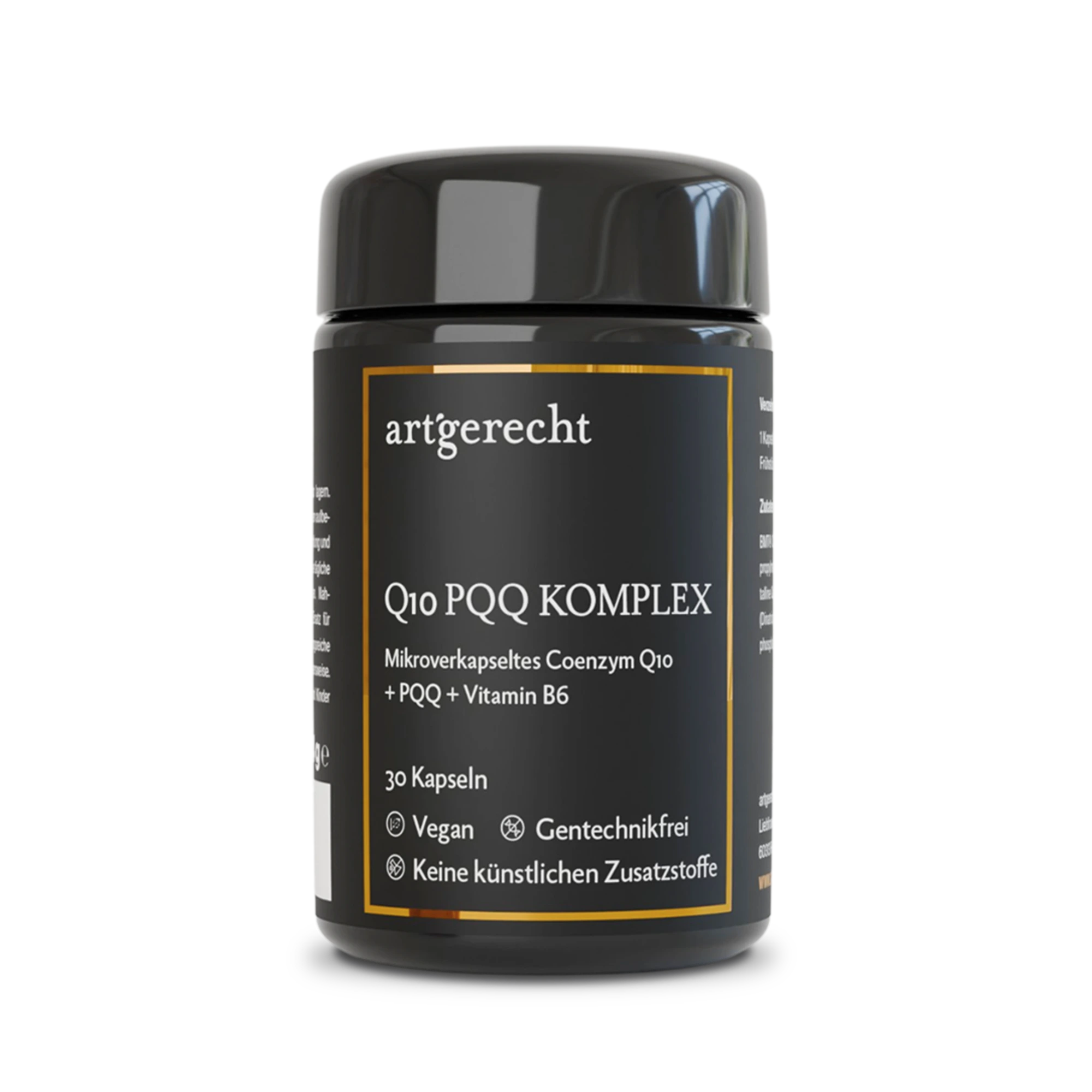 €25.90
€25.90 -
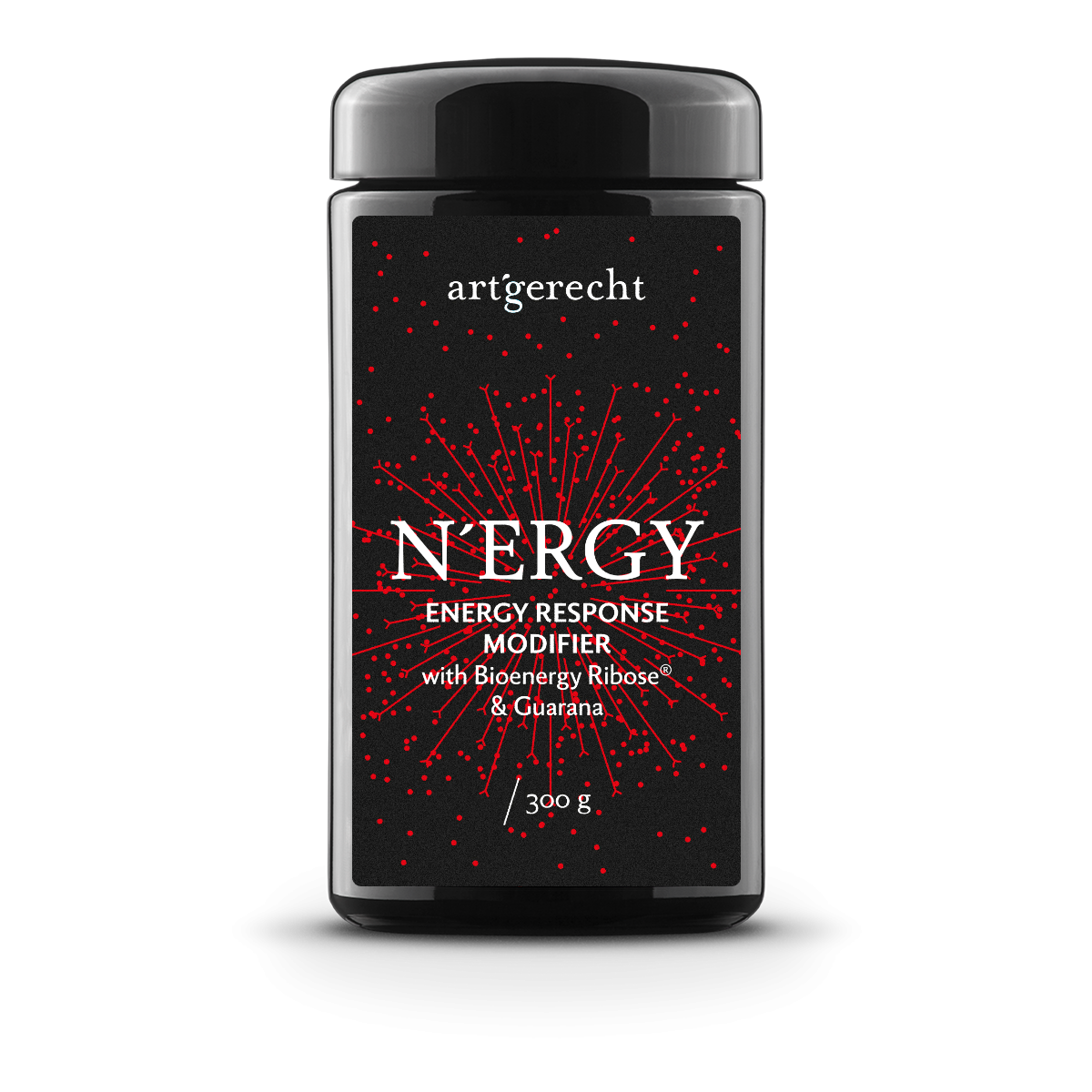 €0.00
€0.00
Kürzlich hinzugefügte Beiträge
-
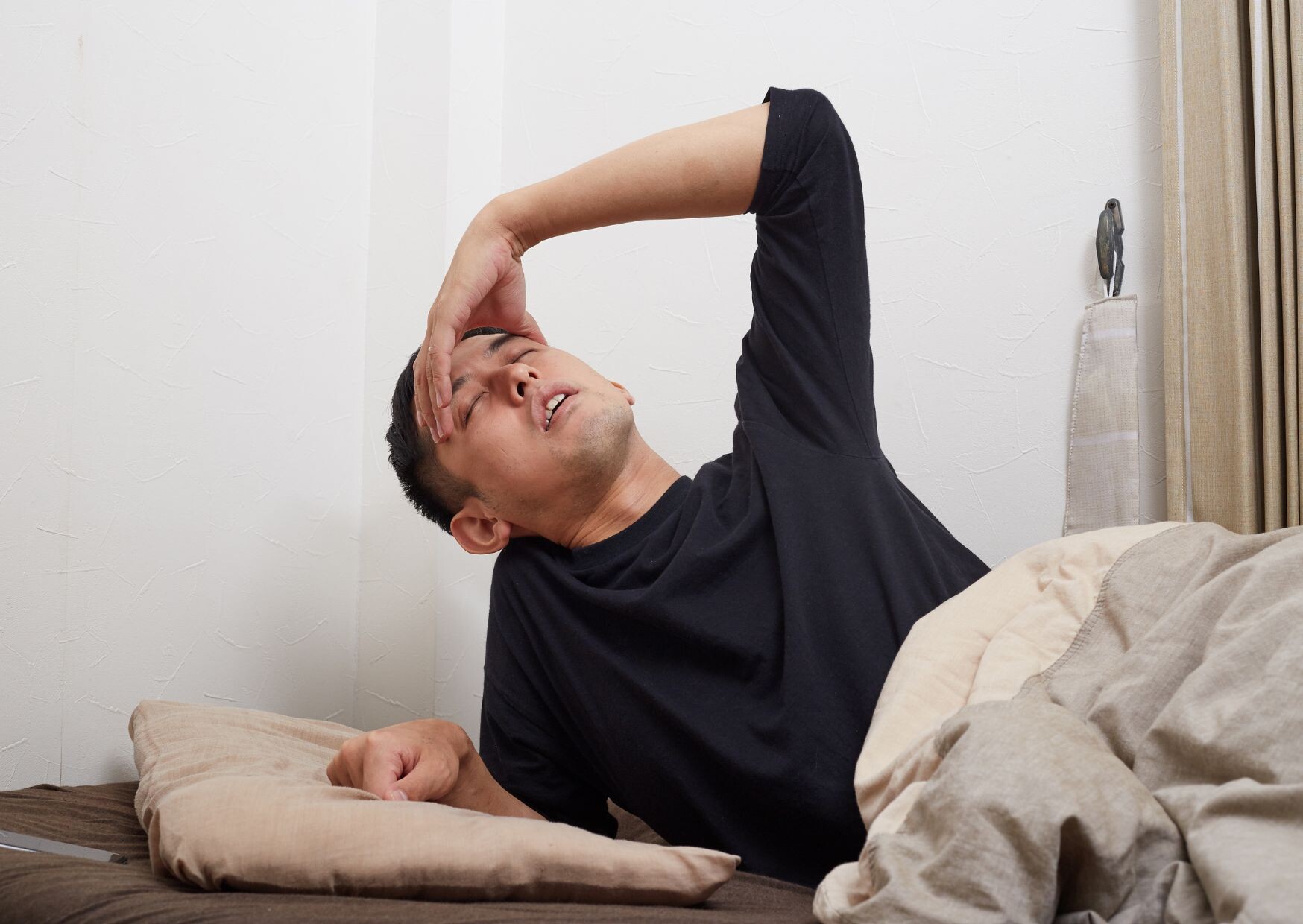 Elektrolytmangel & Hangover – Kater & Kopfschmerzen von AlkoholNach einer langen Partynacht folgt oft der bittere Morgen danach: Kopfschmerzen, Durst und Müdigkeit. Erfahre, wie Elektrolyte helfen, den Kater positiv zu beeinflussen.
Elektrolytmangel & Hangover – Kater & Kopfschmerzen von AlkoholNach einer langen Partynacht folgt oft der bittere Morgen danach: Kopfschmerzen, Durst und Müdigkeit. Erfahre, wie Elektrolyte helfen, den Kater positiv zu beeinflussen. -
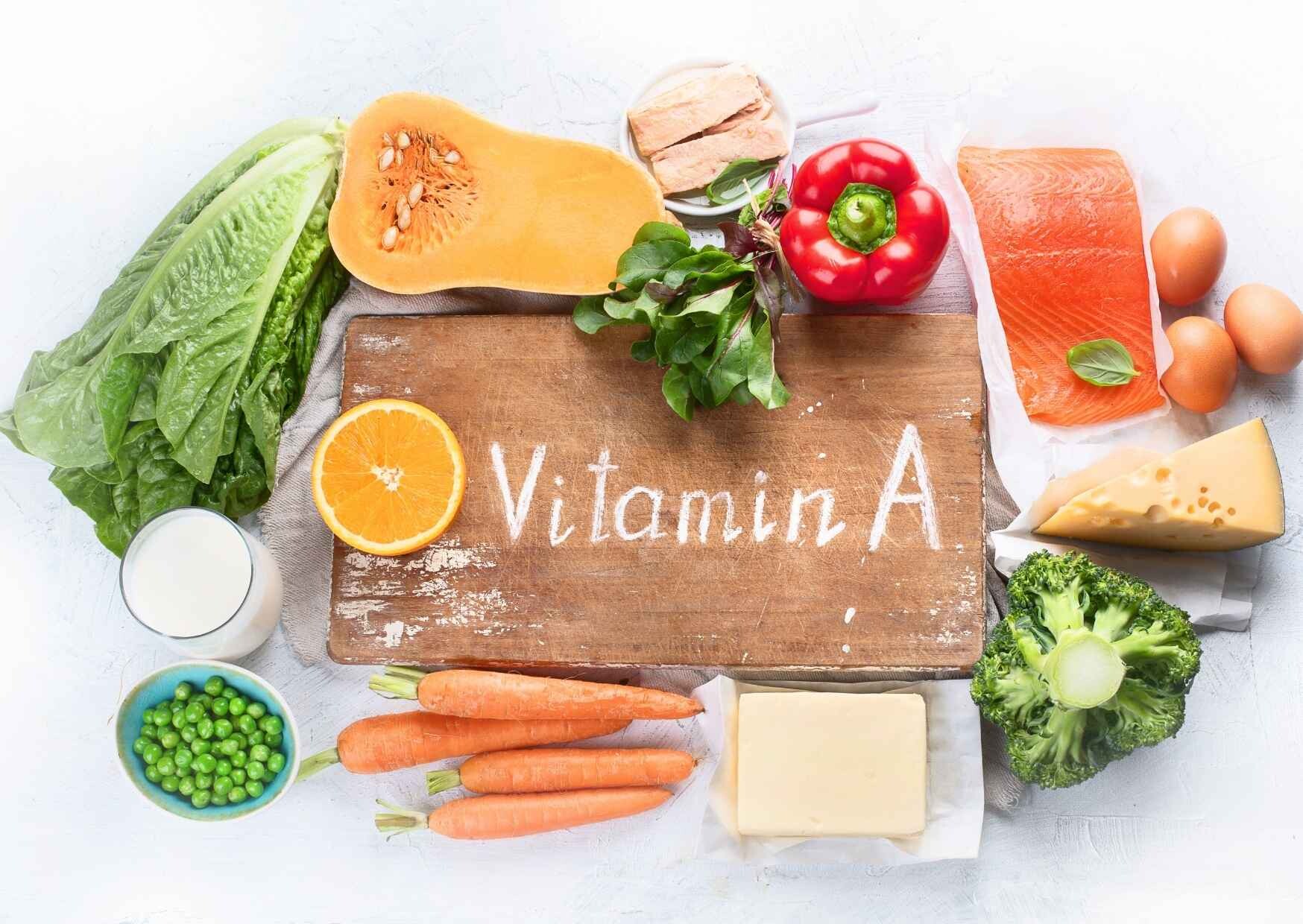 Vitamin A – Warum es mehr kann als nur die Sehkraft stärkenVitamin A ist weit mehr als nur ein Booster für die Sehkraft. Erfahre, wie Du von diesem vielseitigen Vitamin profitieren kannst.
Vitamin A – Warum es mehr kann als nur die Sehkraft stärkenVitamin A ist weit mehr als nur ein Booster für die Sehkraft. Erfahre, wie Du von diesem vielseitigen Vitamin profitieren kannst. -
 Sport ab 40: So schütz Du Herz und Stoffwechsel – selbst mit Wochenend-TrainingBewegung ab 40 ist entscheidend, um Herz-Kreislauf-Erkrankungen und Diabetes vorzubeugen. Selbst wer nur am Wochenende Sport treibt, profitiert enorm für seine Gesundheit.
Sport ab 40: So schütz Du Herz und Stoffwechsel – selbst mit Wochenend-TrainingBewegung ab 40 ist entscheidend, um Herz-Kreislauf-Erkrankungen und Diabetes vorzubeugen. Selbst wer nur am Wochenende Sport treibt, profitiert enorm für seine Gesundheit. -
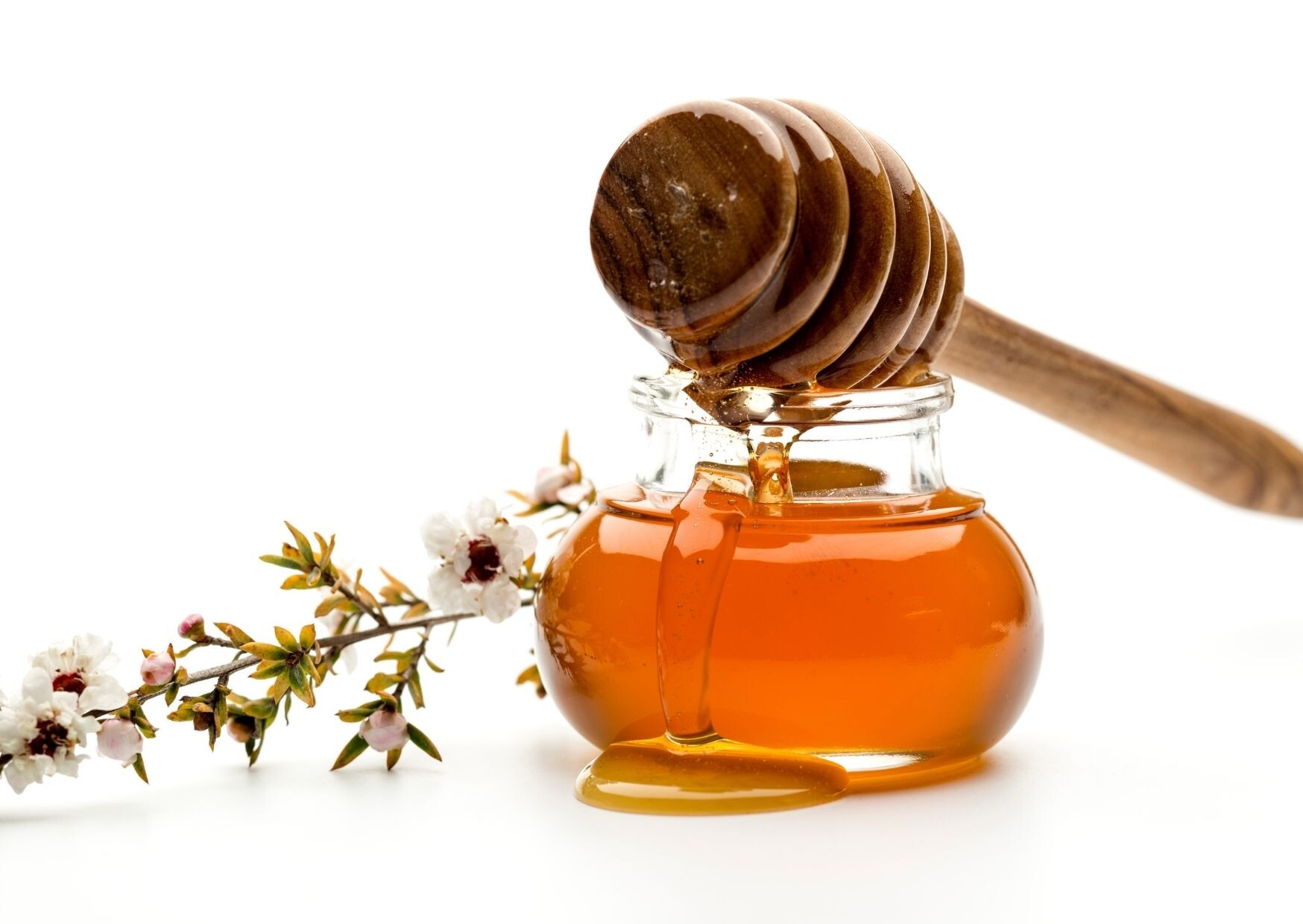 Manuka-Honig – Wirkung, Anwendung & MGO erklärtManuka-Honig gilt als natürliches Heilmittel mit starker antibakterieller Wirkung. Erfahre hier, was wissenschaftlich belegt ist, wie Du ihn richtig anwendest und worauf Du beim Kauf achten solltest.
Manuka-Honig – Wirkung, Anwendung & MGO erklärtManuka-Honig gilt als natürliches Heilmittel mit starker antibakterieller Wirkung. Erfahre hier, was wissenschaftlich belegt ist, wie Du ihn richtig anwendest und worauf Du beim Kauf achten solltest. -
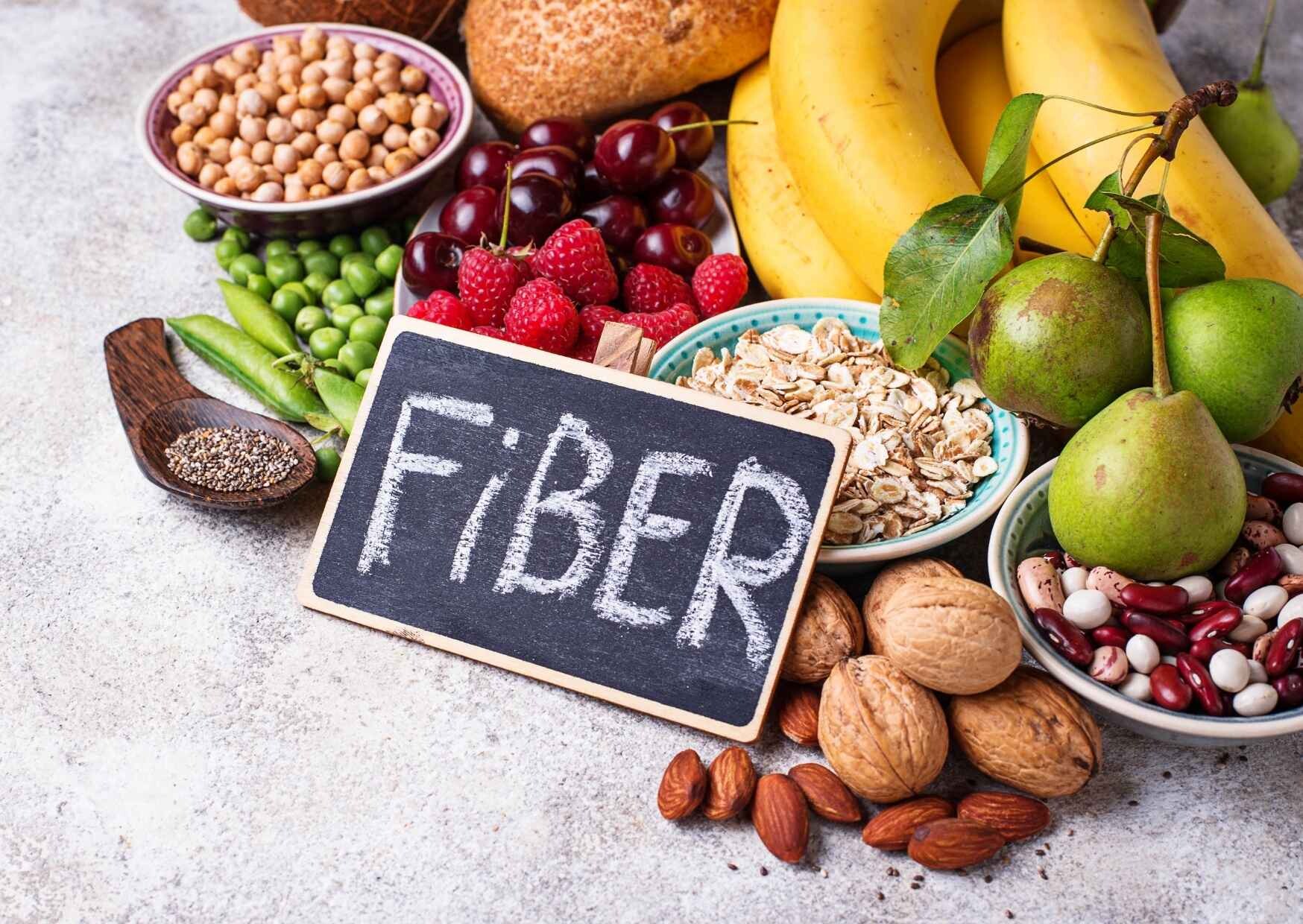 Fibermaxxing – Wie Du mit Ballaststoffen Deine Gesundheit beeinflusstFibermaxxing ist ein Ernährungstrend für mehr Gesundheit, Sättigung und Darmbalance. Erfahre, wie Du ihn sinnvoll in Deinen Alltag integrieren kannst.
Fibermaxxing – Wie Du mit Ballaststoffen Deine Gesundheit beeinflusstFibermaxxing ist ein Ernährungstrend für mehr Gesundheit, Sättigung und Darmbalance. Erfahre, wie Du ihn sinnvoll in Deinen Alltag integrieren kannst. -
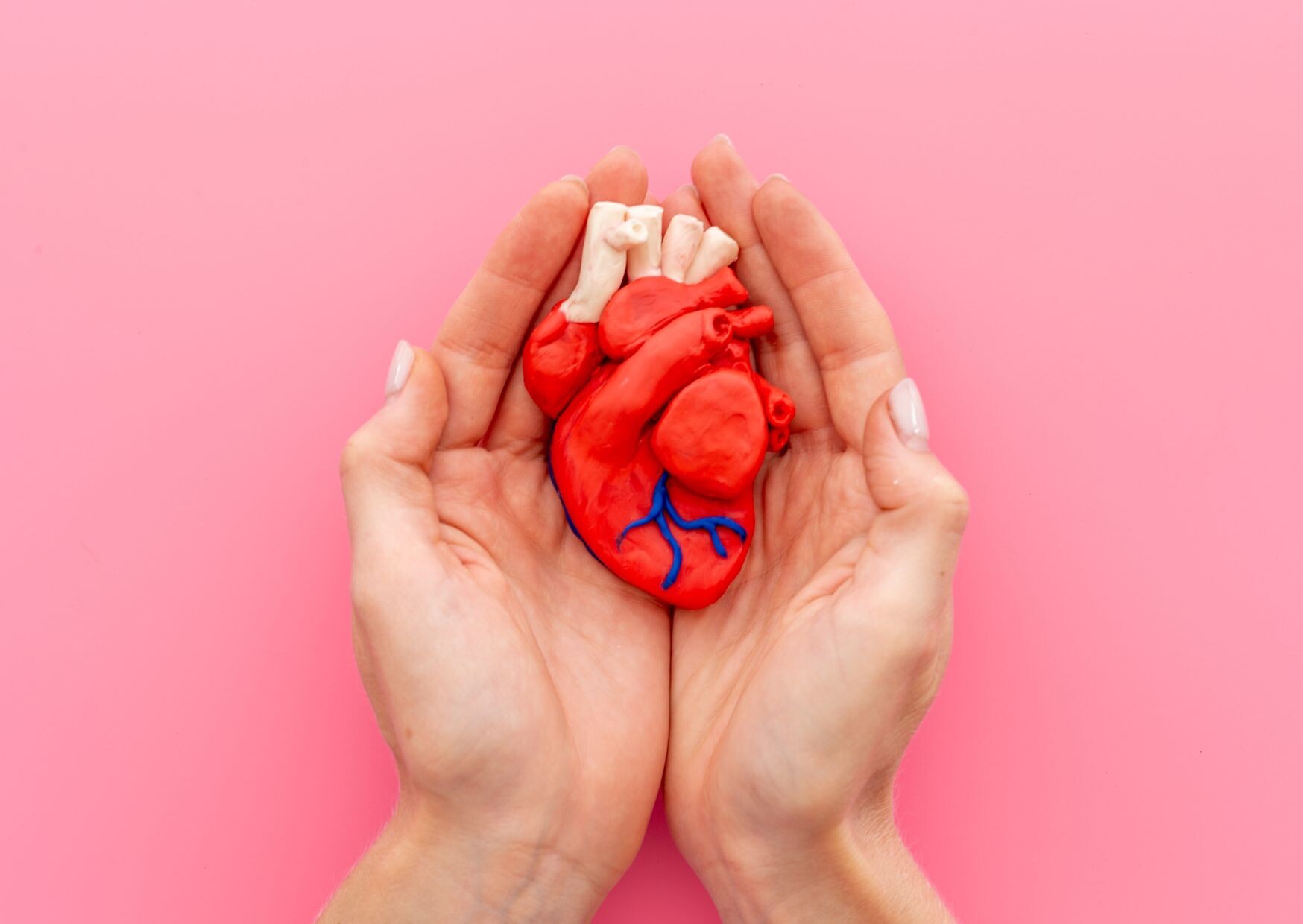 Resveratrol für die Herzgesundheit – Natürlicher Schutzschild für das Herz?Resveratrol gilt als natürlicher Herzschutz, vor allem wegen seines Rufs als gesunder Bestandteil im Rotwein. Doch wie groß ist sein tatsächlicher Nutzen für das Herz?
Resveratrol für die Herzgesundheit – Natürlicher Schutzschild für das Herz?Resveratrol gilt als natürlicher Herzschutz, vor allem wegen seines Rufs als gesunder Bestandteil im Rotwein. Doch wie groß ist sein tatsächlicher Nutzen für das Herz? -
 Elektrolytmangel & Hangover – Kater & Kopfschmerzen von AlkoholNach einer langen Partynacht folgt oft der bittere Morgen danach: Kopfschmerzen, Durst und Müdigkeit. Erfahre, wie Elektrolyte helfen, den Kater positiv zu beeinflussen.
Elektrolytmangel & Hangover – Kater & Kopfschmerzen von AlkoholNach einer langen Partynacht folgt oft der bittere Morgen danach: Kopfschmerzen, Durst und Müdigkeit. Erfahre, wie Elektrolyte helfen, den Kater positiv zu beeinflussen. -
 Vitamin A – Warum es mehr kann als nur die Sehkraft stärkenVitamin A ist weit mehr als nur ein Booster für die Sehkraft. Erfahre, wie Du von diesem vielseitigen Vitamin profitieren kannst.
Vitamin A – Warum es mehr kann als nur die Sehkraft stärkenVitamin A ist weit mehr als nur ein Booster für die Sehkraft. Erfahre, wie Du von diesem vielseitigen Vitamin profitieren kannst. -
 Sport ab 40: So schütz Du Herz und Stoffwechsel – selbst mit Wochenend-TrainingBewegung ab 40 ist entscheidend, um Herz-Kreislauf-Erkrankungen und Diabetes vorzubeugen. Selbst wer nur am Wochenende Sport treibt, profitiert enorm für seine Gesundheit.
Sport ab 40: So schütz Du Herz und Stoffwechsel – selbst mit Wochenend-TrainingBewegung ab 40 ist entscheidend, um Herz-Kreislauf-Erkrankungen und Diabetes vorzubeugen. Selbst wer nur am Wochenende Sport treibt, profitiert enorm für seine Gesundheit. -
 Manuka-Honig – Wirkung, Anwendung & MGO erklärtManuka-Honig gilt als natürliches Heilmittel mit starker antibakterieller Wirkung. Erfahre hier, was wissenschaftlich belegt ist, wie Du ihn richtig anwendest und worauf Du beim Kauf achten solltest.
Manuka-Honig – Wirkung, Anwendung & MGO erklärtManuka-Honig gilt als natürliches Heilmittel mit starker antibakterieller Wirkung. Erfahre hier, was wissenschaftlich belegt ist, wie Du ihn richtig anwendest und worauf Du beim Kauf achten solltest. -
 Fibermaxxing – Wie Du mit Ballaststoffen Deine Gesundheit beeinflusstFibermaxxing ist ein Ernährungstrend für mehr Gesundheit, Sättigung und Darmbalance. Erfahre, wie Du ihn sinnvoll in Deinen Alltag integrieren kannst.
Fibermaxxing – Wie Du mit Ballaststoffen Deine Gesundheit beeinflusstFibermaxxing ist ein Ernährungstrend für mehr Gesundheit, Sättigung und Darmbalance. Erfahre, wie Du ihn sinnvoll in Deinen Alltag integrieren kannst. -
 Resveratrol für die Herzgesundheit – Natürlicher Schutzschild für das Herz?Resveratrol gilt als natürlicher Herzschutz, vor allem wegen seines Rufs als gesunder Bestandteil im Rotwein. Doch wie groß ist sein tatsächlicher Nutzen für das Herz?
Resveratrol für die Herzgesundheit – Natürlicher Schutzschild für das Herz?Resveratrol gilt als natürlicher Herzschutz, vor allem wegen seines Rufs als gesunder Bestandteil im Rotwein. Doch wie groß ist sein tatsächlicher Nutzen für das Herz? -
 Elektrolytmangel & Hangover – Kater & Kopfschmerzen von AlkoholNach einer langen Partynacht folgt oft der bittere Morgen danach: Kopfschmerzen, Durst und Müdigkeit. Erfahre, wie Elektrolyte helfen, den Kater positiv zu beeinflussen.
Elektrolytmangel & Hangover – Kater & Kopfschmerzen von AlkoholNach einer langen Partynacht folgt oft der bittere Morgen danach: Kopfschmerzen, Durst und Müdigkeit. Erfahre, wie Elektrolyte helfen, den Kater positiv zu beeinflussen. -
 Vitamin A – Warum es mehr kann als nur die Sehkraft stärkenVitamin A ist weit mehr als nur ein Booster für die Sehkraft. Erfahre, wie Du von diesem vielseitigen Vitamin profitieren kannst.
Vitamin A – Warum es mehr kann als nur die Sehkraft stärkenVitamin A ist weit mehr als nur ein Booster für die Sehkraft. Erfahre, wie Du von diesem vielseitigen Vitamin profitieren kannst. -
 Sport ab 40: So schütz Du Herz und Stoffwechsel – selbst mit Wochenend-TrainingBewegung ab 40 ist entscheidend, um Herz-Kreislauf-Erkrankungen und Diabetes vorzubeugen. Selbst wer nur am Wochenende Sport treibt, profitiert enorm für seine Gesundheit.
Sport ab 40: So schütz Du Herz und Stoffwechsel – selbst mit Wochenend-TrainingBewegung ab 40 ist entscheidend, um Herz-Kreislauf-Erkrankungen und Diabetes vorzubeugen. Selbst wer nur am Wochenende Sport treibt, profitiert enorm für seine Gesundheit. -
 Manuka-Honig – Wirkung, Anwendung & MGO erklärtManuka-Honig gilt als natürliches Heilmittel mit starker antibakterieller Wirkung. Erfahre hier, was wissenschaftlich belegt ist, wie Du ihn richtig anwendest und worauf Du beim Kauf achten solltest.
Manuka-Honig – Wirkung, Anwendung & MGO erklärtManuka-Honig gilt als natürliches Heilmittel mit starker antibakterieller Wirkung. Erfahre hier, was wissenschaftlich belegt ist, wie Du ihn richtig anwendest und worauf Du beim Kauf achten solltest.
Empfohlene Produkte
Holistic support for bones, joints, muscles & skin
For your well-being – inside and outEssential Vitamin for Eyes, Skin, and Immune System
High-Dose Support for Cells & Immune DefenseFor your universal protection
As one of the most valuable proteins in the body, lactoferrin is a natural component of the immune system.For your iron balance
Specially formulated for your iron balance with plant-based curry leaf iron, Lactoferrin CLN®, and natural Vitamin C from rose hips.Holistic support for bones, joints, muscles & skin
For your well-being – inside and outEssential Vitamin for Eyes, Skin, and Immune System
High-Dose Support for Cells & Immune DefenseFor your universal protection
As one of the most valuable proteins in the body, lactoferrin is a natural component of the immune system.For your iron balance
Specially formulated for your iron balance with plant-based curry leaf iron, Lactoferrin CLN®, and natural Vitamin C from rose hips.Holistic support for bones, joints, muscles & skin
For your well-being – inside and outEssential Vitamin for Eyes, Skin, and Immune System
High-Dose Support for Cells & Immune DefenseFor your universal protection
As one of the most valuable proteins in the body, lactoferrin is a natural component of the immune system.For your iron balance
Specially formulated for your iron balance with plant-based curry leaf iron, Lactoferrin CLN®, and natural Vitamin C from rose hips.Holistic support for bones, joints, muscles & skin
For your well-being – inside and outEssential Vitamin for Eyes, Skin, and Immune System
High-Dose Support for Cells & Immune DefenseFor your universal protection
As one of the most valuable proteins in the body, lactoferrin is a natural component of the immune system.For your iron balance
Specially formulated for your iron balance with plant-based curry leaf iron, Lactoferrin CLN®, and natural Vitamin C from rose hips.
